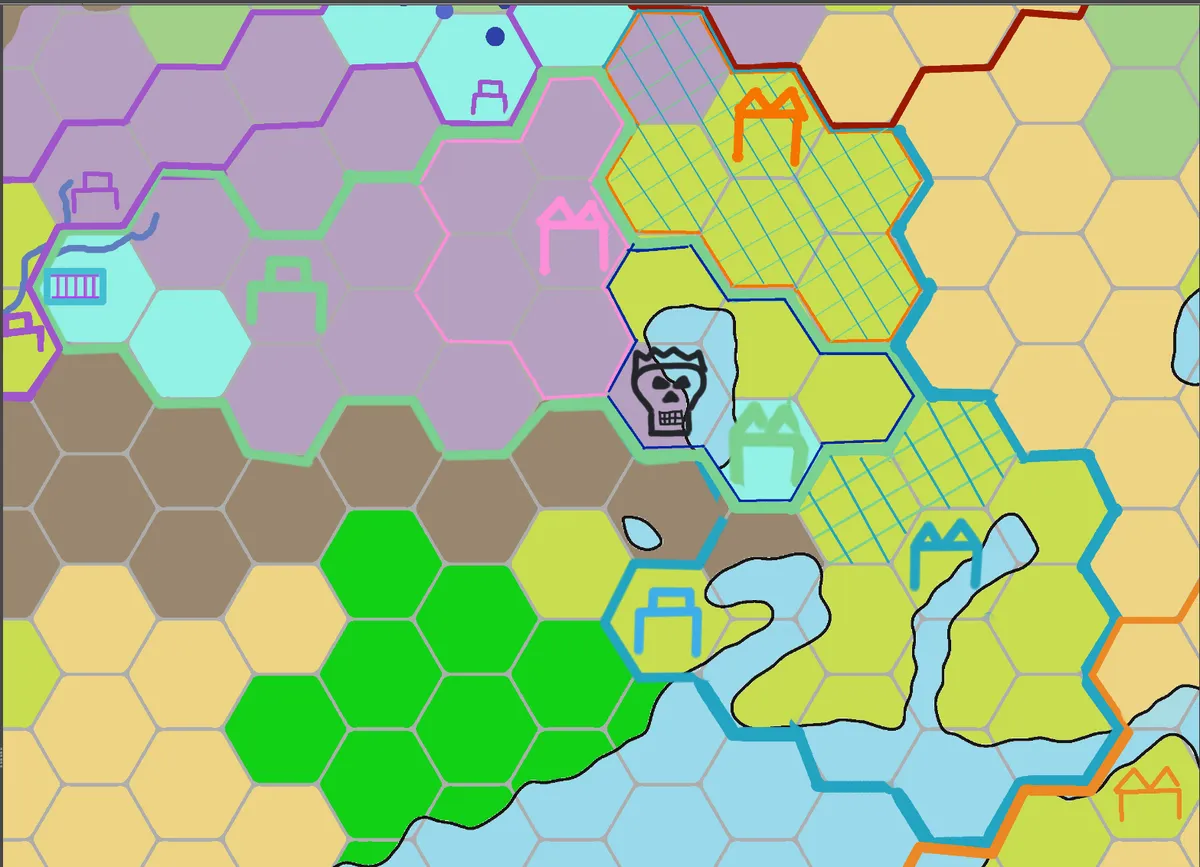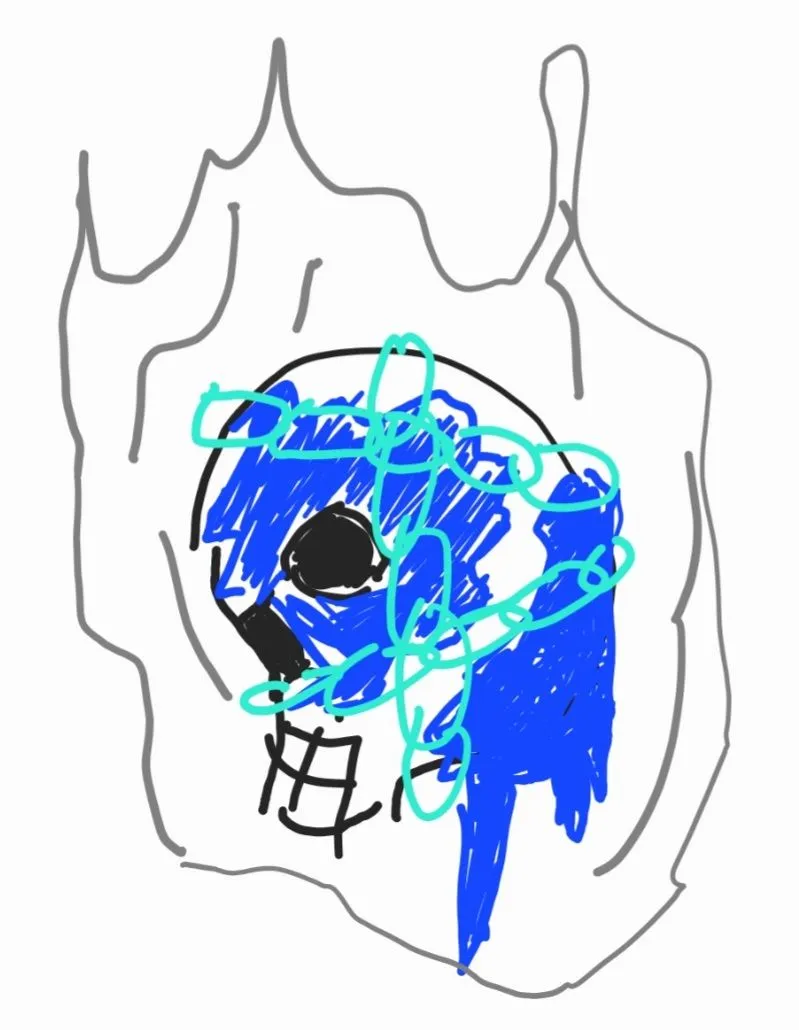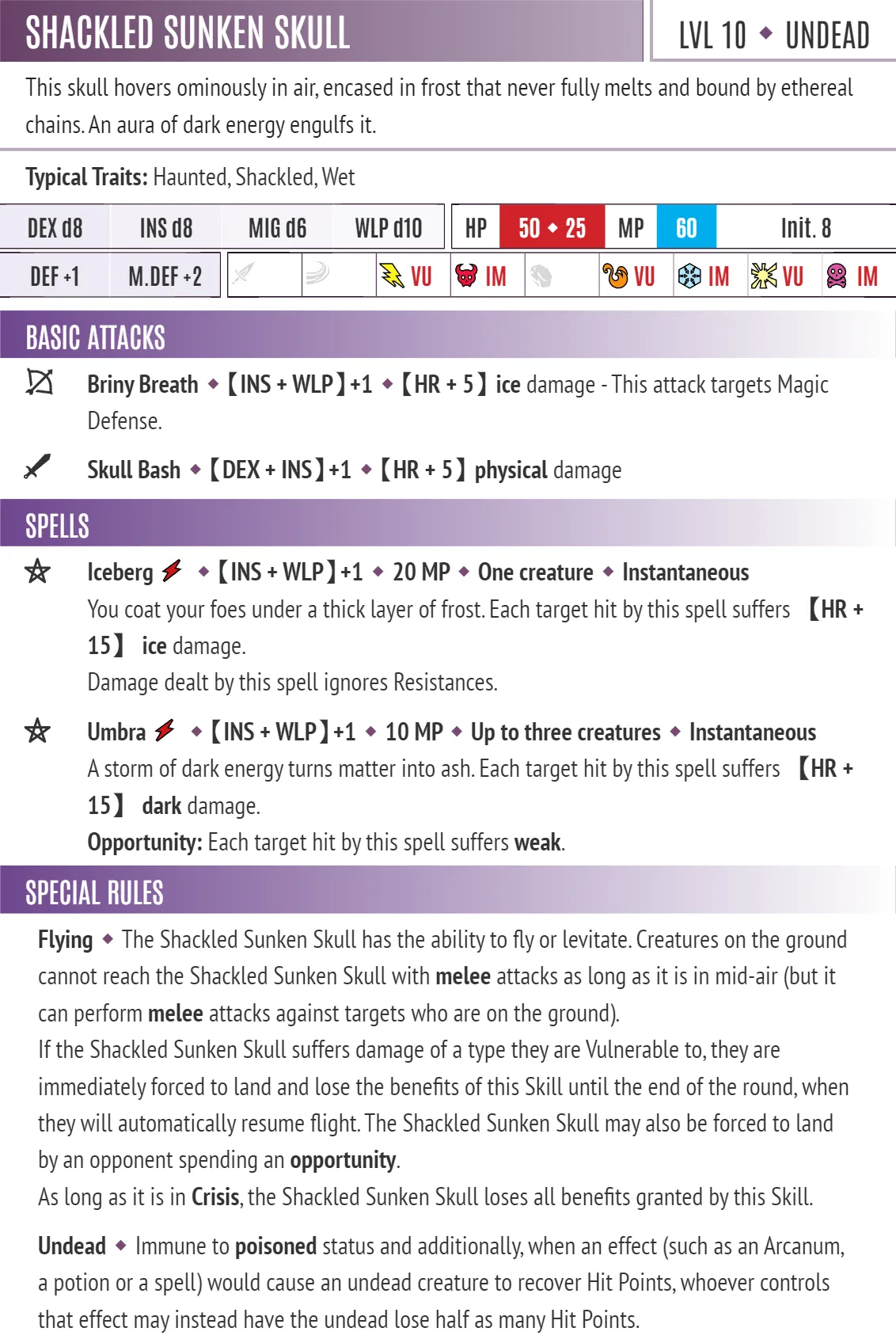Thoughts After One Session of Fabula Ultima
I ran my first session of Fabula Ultima about a week ago. It went well, and it is interesting to start a new fantasy campaign in a game that isn't in direct lineage with a D&D. The session was short, with the players introducing their characters, winning their first fight, and being tasked to investigate a monster attack, but everyone had fun. Assuming I can manage my tendencies toward over-prep and burnout I think we'll get far with the game!
With that one session and an extended worldbuilding and character design period under my belt I have some early thoughts about the game.
Establish Who Is Playing Before Building A World Together
This is a personal lesson, but I do think the particulars of Fabula Ultima contributed to some problems I ran into. My normal game group is two players and myself. We've played together for about a decade, usually with me in the referee or facilitator role. Before deciding our next game would be Fabula Ultima we played Worldwizard with the intent of using the setting we generated in it for our next game. While I pitched Worldwizard to my broader friend group, ultimately just the three of us played, building out a small little world we are excited about.

A map of the Kingdoms of Ysbridia and Nova Sinfonia, plus their associated neighbors. We settled on focusing the game around this region of the larger world we built in Worldwizard.
When we decided to play Fabula Ultima with the world we built, I pitched the game to more friends, expecting folks would politely decline the invitation. Instead we picked-up three more players who are excited by Fabula Ultima's pitch of "This game mimics old Japanese role playing video games (JRPGs) like Final Fantasy." Great news! Where this became a lesson learned, though, was in integrating their characters and ideas into a setting they were unfamiliar with and which carried a lot of non-JRPG signifiers by virtue of Worldwizard skewing toward generating settings to play D&D in.
I spent most of the two weeks I gave myself to outline a campaign and prepare a first adventure instead fielding questions from the new, excited players as they tried to get a handle on what character ideas could fit the setting, what bits of the setting they could change, and what was immutable, either because another player flagged it as important to them or because I was reserving it as a *mystery to explore through play. This a good sort of problem, but an exhausting one none the less. The day before the actual first session I had to just tell folks "I cannot answer questions today, I need to prep."
I suspect a lot of these issues can be mitigated by having the game and players figured out before doing worldbuilding. Even if we still played Worldwizard instead of using Fabula Ultima's worldbuilding rules we would have been fine because it would have given those three new players a chance to flag what is important for them in the game. Whether I can successfully do that in the future, though, is tricky. Group dynamics and what will catch folks interest is so fickle.
Quirks Add A Lot To The Game
As part of our prep, we all sat down over a couple of pre-game sessions and agreed on which optional rules we wanted to use. Most of them haven't come into play yet - the party hasn't rested yet, so nobody had a chance to use one of Natural Fantasy's Camping Actions - but of those that have, Quirks feel like they had the most impact.
Mechanically, they force me to tweak how I design encounters. For example, the runaway princess in the party picked the Planet Oracle quirk, which allows her to heal a few more hit points when casting a cure spell and - critically - remove a single status effect from an affected party member. Status effects are powerful tools in the game, and a great way for me to have a foe apply more pressure to the party without constantly just attacking their HP. This quirk gives a quick and relatively cheap way to mitigate the impact of status effects. If I want to use them, I now need to give foes - mostly "boss" fights - a mix of status effects they can apply instead of just one that might be thematically appropriate. I also need to mix in a few status effects that affect the whole party since the princess is limited to healing just three people at a time.

Narratively, they fueled a lot of creativity for my players. The spell fencer of the group picked Revenant and hooked it into a bit of setting lore, where the nobility of the country of Ysbridia will marry both a living spouse as well as a ghost spouse. Her character was a ghost bride, but an accident at sea led to her mysteriously inhabiting her partner's body, while his own soul seems to have vanished. The player's excited to find out why this happened and I was able to take that minimal amount of backstory and immediately hook it into the larger mysteries of the campaign I have outlined.
Quirks also became the narrative core for a few characters. The dwarf crystal engineer picked Agitator - she's decided she's traveled from a polity conquered by the evil empire of the game to stir-up rebellion. The player who picked Planet Oracle had several conversations with me, discussing what that meant in the setting and how she was granted, inherited, or forced into that power. Class choices still matter a lot, but the quirks focused players and allowed them to design their characters' identity.
While I have trepidations about their mechanical impact, I think these narrative impacts outweigh those concerns. I readily recommend using quirks as an optional rule.
Combat Is About Momentum
This one is true about many RPGs that incorporate or center combat in the gameplay. Action economy typically decides which side will win or lose. What felt different about the single fight we ran was how much action economy mattered.
The party of five player characters and one pet dog faced down a group of five monsters, two of whom were spellcasters. Both sides spread their damage around for the first two-thirds of the fight. The players because they were getting used to a new game, the monsters because I followed Fabula Ultima's advice to use random targeting instead of picking which threat attacked who each turn.1 This created a slugfest of a fight with a real sense of peril, especially anytime the two spellcasters targeted multiple characters with an attack spell. But as soon as one of the monsters was KO'd the peril vanished. Suddenly the players had the action economy advantage and parlayed that into swiftly ending the fight.

A quick-and-fun doodle of the spellcasting Shackled Sunken Skulls that vexed the party.
Everyone had a good time and nobody but the pet dog was KO'd, but more than even in a D&D game it felt like the momentum swung as soon as the players had the action economy advantage. I am interested to see what that momentum looks like when they fight some of the tougher foes who get two or more actions per round of combat. And I kind of dread what the momentum will look like if a player character goes down early in a fight and gives the foes the action economy advantage.
Adventure Design Is Constrained
I am struggling to design the kinds of stories I normally tell, and it largely comes down to how Fabula Ultima budgets its encounters and treasure. Per the core rulebook, a party can handle two conflict encounters before needing to rest. Similarly, a party of five level 5 characters should receive 1,000 zenit's (the game's currency) worth of treasure every session, with no single item given out being worth more than 500 zenit. This is clear advice, and the core rulebook has great tools and guidance for designing conflict encounters and treasure within these boundaries. But they are a constraint I feel every time I sit down to prep.
Two encounters is not a lot of encounters. I think the intent is that you get two fights in per four-hour session of play, then allow characters to rest at the end of the session. That's fine, but it is hard to use that very tiny budget to mimic an experience core to the source material that Fabula Ultima pulls on - exploring a dungeon. The end of our first adventure will be a small six room dungeon. Seeding it with only two fights makes it feel shallow. It's hard to build narrative tension when you have two conflicts and then the party rests.
I think the core rulebook recognizes this is a tension as well. It discusses dungeons over a half-dozen pages spread across two sections of the book - a generous amount of space in a book that otherwise is measured in how much page space it allots to any given subject. In that time it manages to both declares that the game can't handle dungeons and emphasize they are an important part of the games Fabula Ultima emulates. It then provides tables to assist with designing dungeons.
Even divorcing encounter design from the dungeon environment, it is hard to build tension with the understanding that every two conflicts the players will retreat to an inn or set-up a tent and rest for the day. This sort of player-paced engagement with a story works well in a JRPG where time is elided. But in a tabletop game it creates an awkward sense that the world is frozen until and unless the players engage with it.
Ultimately, it reminds me of a kind of game design I don't like - Adventurer's League or RPGA design. Bite-sized adventures where your choices are constrained in order to make sure you get a whole micro-story in four hours of play. I have chafed against this sort of design for decades, even as I design adventures in the same kind of "traditional" model League stories use.
Treasure is similarly constrained. The cheapest "rare" armor in the book is 600 zenit, above the price. Weapons are constrained to swapping out what damage a given sword or gun can do until you hit a tier of play with a larger zenit cap. And if you want to give out an accessory - one of the few gear slots available to the characters that isn't filled at the start of the game - you will hit that cap. Combine this with treasure being paced by the session, not the adventure, and I can already see that I will have to generate several pools of highly constrained awards and find creative or awkward places for the players to find them.

The stats for Veilpiercer, a rapier the party will find in the first adventure.
I am hoping that I will feel better about these constraints the more I play. I am especially hoping that once the players start directing the story and we break away from the scripted, League play-style adventure I drafted to get the game rolling that the encounter design limits will stop feeling like shackles.
Threat Design Feels Good
Threat design in Fabula Ultima - specifically, designing combat-oriented conflict scenes - feels good in the way that D&D 4e combat design feels good. Encounters default to including one foe per player character present, with options to sub-in tougher elite or champion units by reducing the number of foes present. Difficulty is adjusted by the highest level of the foes in the fight. I need to experiment with how these dials affect how hard a conflict feels, but I appreciate how straightforward it is.
Actually designing foes is a bit more involved. Foe creation follows a series of steps where you choose statistic arrays, species, and a variety of abilities that in-turn can affect stats, modify the foe's basic attacks, improve their derived stats like initiative of defense, or grant them spells. The foe's level, type (e.g., soldier, elite, or champion), and species will further modify stats and also give you a number of build points to spend on attack modifiers, special abilities, and spells.
No individual step was difficult to follow, but I spent a lot of time flipping back-and-forth between different parts of the rulebook while designing relatively simple threats.2 Using the Fultimator community tool helped cut down on some of the page flipping and especially helped track how many build points I had available to spend. The stat blocks Fultimator generates are also easy to read, to the point I kept the program open while running my session so I could easily reference stat blocks.3

The stat block for the Shackled Sunken Skull pictured earlier in the post.
I'm Optimistic!
I feel good about how the game kicked-off! Fabula Ultima is different enough from the kind of games I typically run or facilitate that I am not without concerns, but I think the game gives me enough tools to help me manage any issues that come-up during play. I think if my group can signal me sufficiently far enough in advance about what adventures they want to have then I will come away from this campaign feeling pretty good.
Random targeting as a directive is fascinating. It easily leads to situations where one player by a quirk of the dice can be targeted three or four turns in a row, but overtime it does spread damage across the whole group. This creates a lot of "Oh shit" moments as someone's health suddenly takes a dramatic dip, but - at least one fight in - mitigates the chance that a player character will be knocked-out. That's important since the moment a player character hits zero hit points they are removed from the scene and cannot re-enter it.↩
The ease of making monsters is welcome after years of designing D&D 5e foes. The threat math in that game is notoriously incorrect and even after years of practice and reading helpful blog posts I never felt like I got good at it. I feel like I can get good at designing Fabula Ultima foes.↩
The stat blocks embedded in the post are pulled from Fultimator, with icons generated at Game Icons.↩